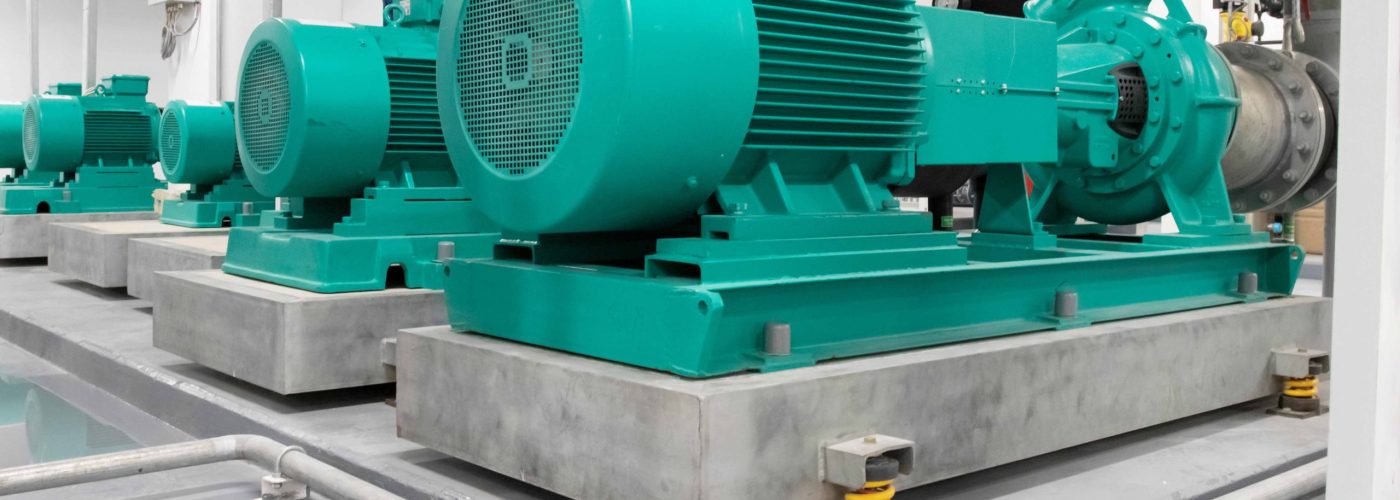Summer is coming to the Northern Hemisphere, which means hospitals and universities will soon be gearing up their comfort cooling systems for use. While it is standard for these institutions to have backup pumps for chillers and closed loop systems, it is also common for these pumps to develop corrosion problems during the offline phase. Cortec® offers relief from these corrosion complications with two water treatments that contain Vapor phase Corrosion Inhibitors.

Pros and Cons of Pump Redundancy
Hospitals especially—but also universities—need to have redundant systems to make sure operations continue in the case of emergency. If one pump fails, a backup pump will ensure the chiller or closed loop keeps operating with little to no change noticed by the people inside the facility. Unfortunately, the offline period is an extremely vulnerable time for pumps because they are not exposed to their normal corrosion inhibiting water treatment when no water is flowing through. To counter potential surprises and make sure the backup pumps stay in good condition, facilities often alternate between pumps every week or two. However, corrosion can still happen in this short layup period, introducing a slug of corrosion products into the piping when the pump is turned on. This can cause clogging and other complications for a less than smooth startup.

The Cortec® Corrosion Inhibitor Advantage
One advantage of Cortec® closed loop water treatments is that they protect in multiple phases. Not only do they dissolve in water to fight corrosion on surfaces in direct contact with the circulating stream, but they also work in the vapor-phase, protecting metal surfaces above the water level. This vapor-phase action is exactly what is needed for pumps and piping that are periodically emptied but may contain residual water. Even if the system is complex or empty, Vapor phase Corrosion Inhibitors are able to protect in areas that contact-only corrosion inhibitors cannot reach.
Layup of Chiller Pumps on Standby
VpCI®-649 is a Cortec® water treatment recommended for protection of chiller pumps. It should be added to the closed loop / chiller water and circulated through the system before the pumps are shut down, leaving behind a corrosion inhibiting film that protects multi-metals above and below the waterline. Dosage is dependent on the length of protection needed—a smaller dose during operation and an incrementally larger dose for longer periods of layup (up to two years). There is typically no need to flush the inhibitor out before bringing the pump back online, making the transition even more seamless than simply having a lower chance of corrosion complications. VpCI®-649 comes with a molybdate tracer for easy detection but is also available with a PTSA tracer for those with molybdate restrictions.

For pumps used with HVAC closed loops that reach temperatures of up to 302 °F (150 °C), Cortec® recommends using M-640 L, which also contains contact and Vapor phase Corrosion Inhibitors. It is an excellent replacement for silicates and phosphate/nitrite-based compounds and protects yellow and ferrous metals. It can be used in closed loops during operation or layup, allowing great flexibility for maintenance personnel or water treatment service providers.
Don’t Sweat It This Summer
Summer is hot, which is why hospitals and universities use comfort cooling systems in the first place. But there is no need to increase the extra heat and sweat of stress from trying to undo a corrosion problem on chiller pumps. Traditional corrosion inhibitors fall short of the goal, but Cortec® Vapor phase Corrosion Inhibitors easily achieve the void space protection needed so offline pumps can be ready to start at a moment’s notice. Contact Cortec® to learn about making life easier for your facility maintenance team this summer:
Building, Design & Construction Magazine | The Choice of Industry Professionals





